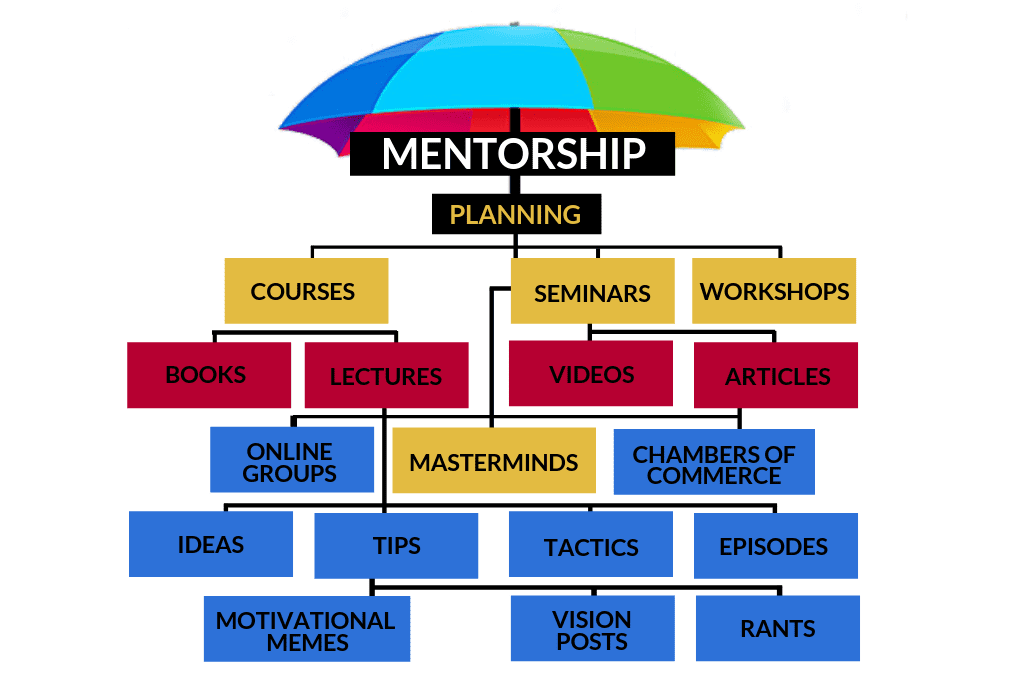You have too many ideas.
You can’t do all of them.
And you get more every day.
The further you progress in your entrepreneurial career, the more ideas you’ll have. You’ll never run out. And as our social presence increases online, you’ll soon go from treading water to drowning in things you could do. Unless you have a filter.
Here are five critical filters, in order of application:
1. The BS filter.
“Is this an idea, or a proven strategy?”
In other words, has the person sharing the idea actually done it and tracked data? Has the person compared it to something else?
“The Panther floor scrubber is the best! We love it and so do our members!”
“What else have you tried?”
“Uh, nothing.”
This isn’t a problem in our group, but it sure is in others.
As a mentor once told me: “Don’t trust people who are willing to make bets with your money.” If they’re pulling ideas out of their butt and testing them on other people, don’t listen to anything they say.
This is the “easy-hard filter,” because it’s easy to be skeptical of people but harder to filter ideas. So if you see a good idea from a sketchy source, you might still want to try it. Go on to No. 2.
2. The math filter.
Which metric will change? By how much? And what will happen if I do nothing?
If you’re tracking your average revenue per member (ARM), length of engagement (LEG) and profit, the math filter is simple.
You simply write down all the ideas you’re thinking about working on. (Read which metrics you need to track here). Then you hold them up to the lens of your metrics and ask, “Will this one improve my ARM? Will it improve my LEG? Will it improve my profit?”
If you aren’t sure, put the idea aside. You’ll have plenty of others.
Being sure means having data. For example, “Clients who start with 1:1 training for at least five sessions have an increased LEG of four months” is great data. “Our clients love having couches to crash on after class!” is not.
Maybe having couches means something; maybe not. You have more than enough ideas; let’s stick to the ones that will show a measurable benefit first because you can’t do everything.
3. The time filter.
Do you need to do it now? When is best?
We’re all drawn to urgency over importance (it’s why people smoke cigarettes and don’t exercise).
Personally, I have this tremendous fear that if I don’t act on a great idea now, someone else will. Derek Sivers’ book “Anything You Want” has helped a great deal. And my business mentors often help by telling me, “Let’s put that on the list for next quarter, and if it’s still really exciting, we’ll do it then.” I can literally hear my mentor’s voice saying that as I type it!
Remember: you’re not going to run out of great ideas.
4. The variables filter.
What’s the next best step?
George Dantzig wasn’t the lead singer of The Misfits. This Dantzig was a mathematician. He invented the simplex method. In a nutshell: There are too many things you could do right now to change your future. We can’t measure the outcome of any of them precisely because there are too many variables. So the best thing you can do now is to determine the next best step.
That’s even harder than it sounds. You need an objective eye on your business. But if you don’t have a mentor yet, listen to Jay Williams’ speech from the 2017 Summit. It’s simply called “Action,” and it will help you take the next best step.
5. The context filter.
Is this right for my specific case right now? Why?
None of us can remain objective about our business. We’re subjective creatures. We all need a mentor who knows our history and can see our future. Read “The Lineage of Mentorship“; or, if you prefer, here’s a graphic that explains how a good mentor builds a plan with you:

The blessing of being a smart, entrepreneurial person is also the curse: You’ll always have more ideas than you can possibly act upon.
Just yesterday, a friend offered to sell me his company, which is built on a great idea, already profitable and working from the “help first” perspective. I was excited. The idea passed through my BS filter (I know his history and trust him). It passed the math filter (I saw his numbers). But it didn’t pass my time filter, because I have other time investments that will yield a greater return. So I passed the idea along to a friend instead.
Being successful doesn’t mean doing more things. It means doing the right things. My mentors filter my great ideas and opportunities.
Who filters yours?

